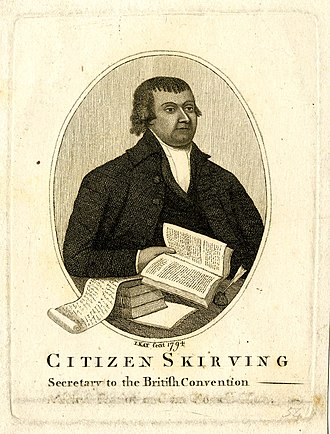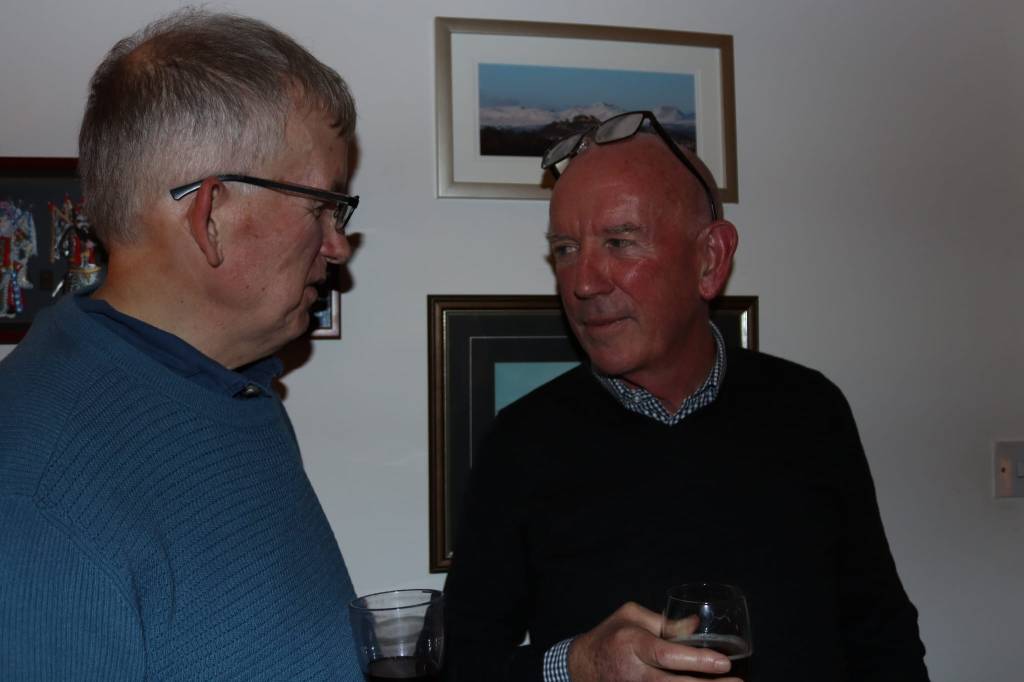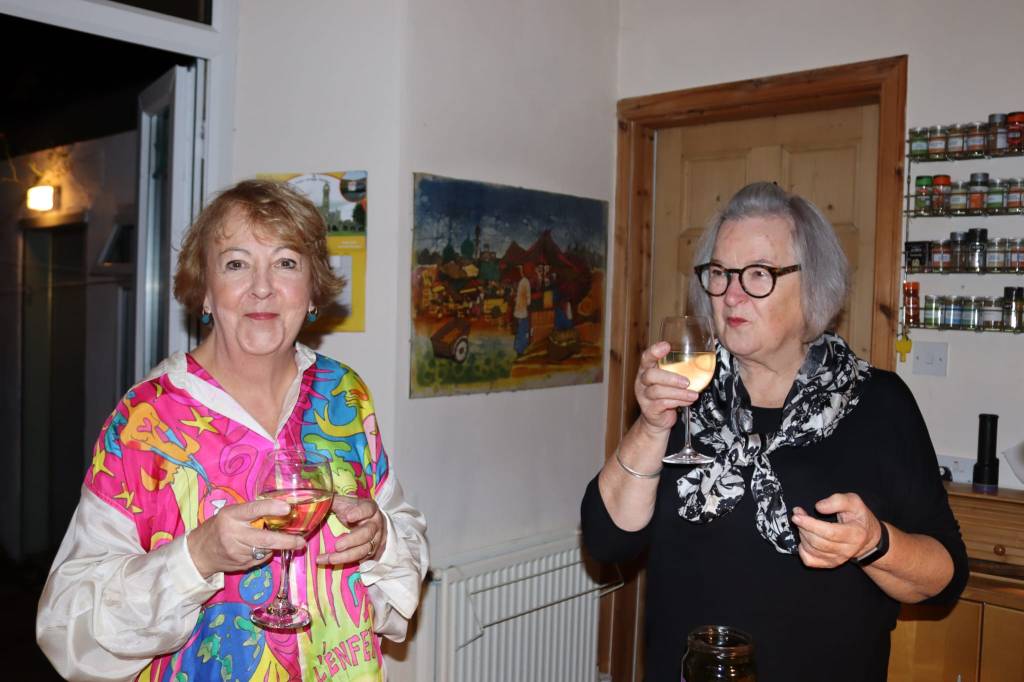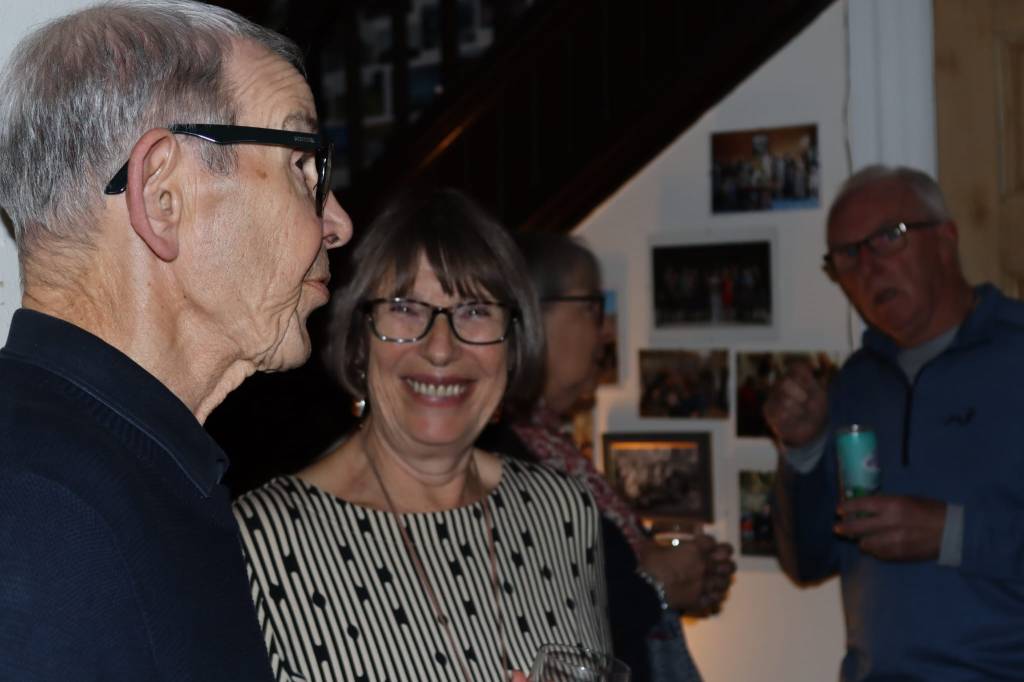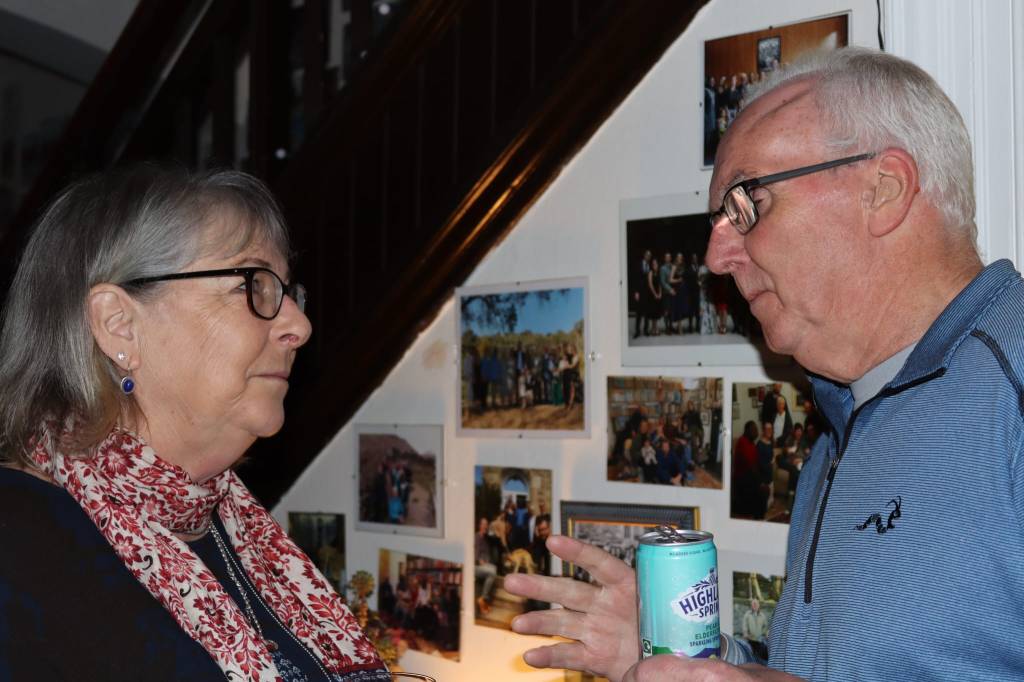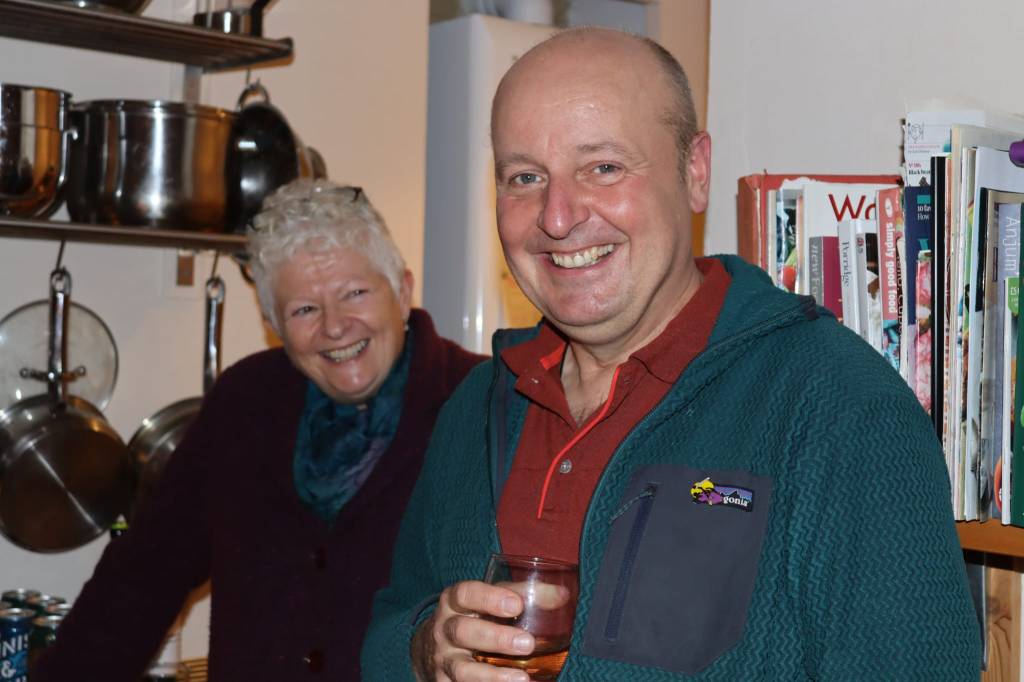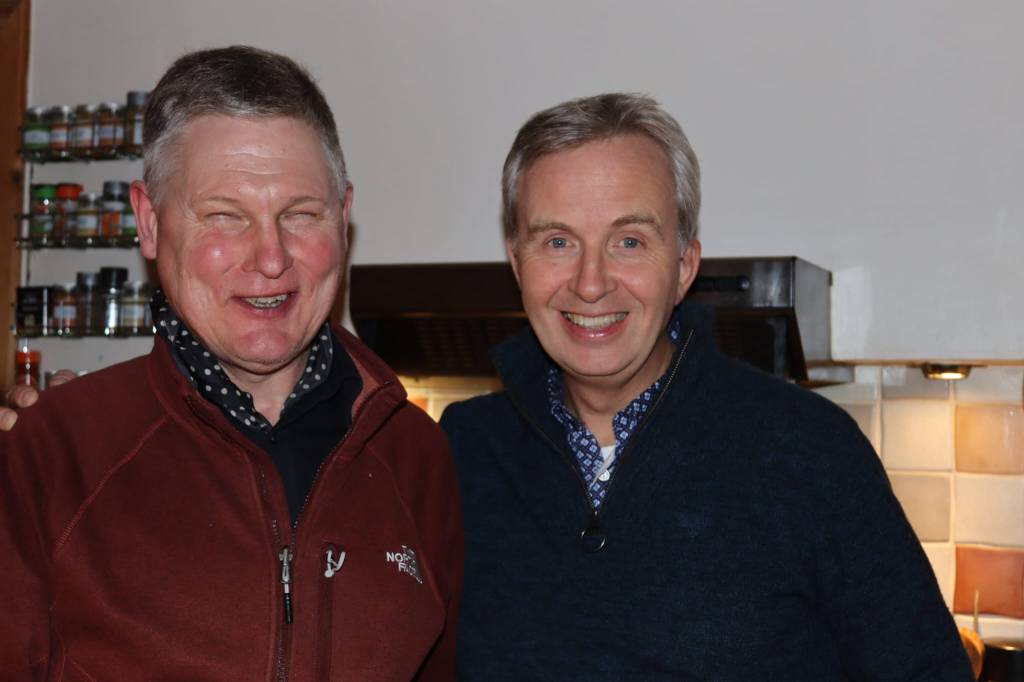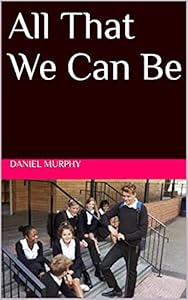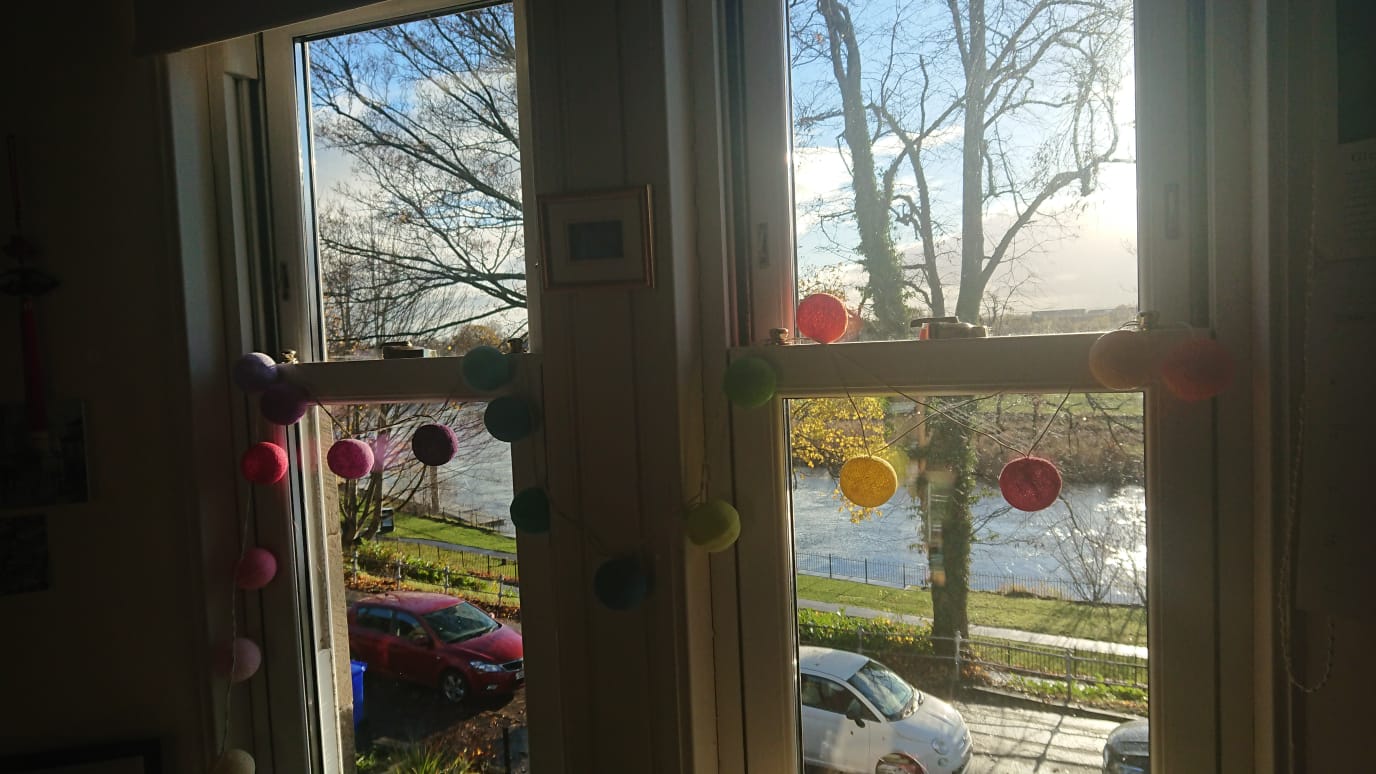I usually think of the Christmas holiday as offering at least two or three days of uninterrupted reading pleasure, a bit of time and space to attack the mounds of reading material accumulated during socially busy December – journal, magazine and newspaper articles, podcasts unlistened to, unread books buried under a new pile of well-chosen Christmas presents, this year including works by authors new to me: Ta-Nehisi Coates, Peter Wohlleben, Philippe Sands and Colson Whitehead. Why then, would I choose to bodyswerve these wonderful reads and spend the small amount of reading time I actually achieved over the holiday period on a library book, and another I picked up in Waterstone’s? I don’t know the answer, but I’m glad, all the same, that I did manage to read ‘Poverty Safari’ and ‘Days Without End’– very different books, very different themes: one an insightful polemic about the experience of and damage caused by social inequality and a powerful memoir full of honest self-reflection and responsibility, the other a beautifully crafted work of art with no such obvious impact, other than admiration for the artist and the quality of his work.
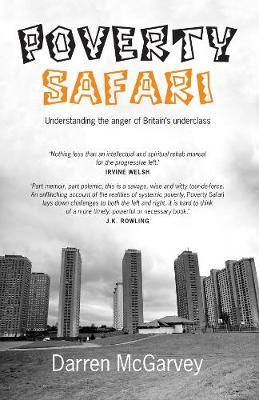
Darren McGarvey (also known as Loki @lokiscottishrap ) has lived a lot of life in his 33 years and he brings much of that experience, as well as considerable passion and compassion into his autobiographical take on his own life to date and the story his life tells of the way we live now and what we should do about it – ‘Poverty Safari’, a phrase he coined when commenting disparagingly on an artistic middle class ‘visiting’ experience of urban Glasgow (he later apologises for his presumptuous dismissal of the artist involved). His personal story, honestly told, is a powerful witness testimony of the challenges he experienced growing up in Pollok, the difficulties of family life with an alcoholic mother, his perceptions of where he fitted in and where he didn’t, leading on to a growing awareness of systemic social failures and inequalities and a campaigning determination to attack these at system level. Finally, he changes his perceptions of what has happened to him, what he has done, and discovers a more complex, nuanced understanding of who he is and what he stands for.
Rather than summarise or critique, the best thing I can do is quote some of his own powerful words, page after page of which I couldn’t put down. It was like being in the room with someone whose story is so compelling, whose insights are so valuable, that you just want to hear more.
‘My mother lived with us until I was about ten. During that decade, she left a life-altering trail of carnage in her wake; each year her behaviour was more bizarre and unpredictable than the next. One sunny afternoon in Pollok, not long before she left. I arrived with a couple of friends in tow, to find many of the contents of our home laid out in the front garden, incinerated. I can’t recall what explanation I offered my friends, though I suspect none was required. They already had some insight into how we lived. When you live in a troubled home, life spills out onto the street. Eventually you become closed off to the dysfunction, perhaps to spare yourself feelings of shame or embarrassment. You adjust to the fact that people in the street know your business and are probably judging you. Privacy becomes another elusive luxury beyond the reach of people like you.
Dignity was for the fancy people.
Pretending you’re not poor is one thing. All you need to pull that off is a couple of credit cards, a catalogue and a deep delusional streak. It also helps your street credibility if you keep that big blue crate of European Union stew that you’ve received for free as a poverty perk well out of view if you have visitors round. But concealing family dysfunction is much trickier. For one, the dysfunction may be out of your control; a parent or sibling, for example. Second, the dysfunction may be imperceptible to you and therefore hard to hide…
By the time it becomes apparent that your life isn’t normal, it’s too late to keep up the pretence. Concerned neighbours hear your troubles through the walls. Teachers, doctors, social workers and mental health professionals are aware of your ongoing situation. But for every person showing concern or offering support, there’s another waiting to exploit the vulnerability….
Dysfunction at home, mainly around my mother, as well as the obvious fact we were poor, was something I had to account for when I was at school. On a few occasions I arrived there after dressing myself and became the butt of playground teasing. One morning, I remember my dad having to leave work to come to the school with a proper outfit for me. God knows what I was wearing. There were other occasions when I’d be sitting at the reception of nursery or school, well after the end of the school day, waiting for someone to come and pick me up.
I remember climbing onto a kitchen worktop to gain access to a cupboard so that I could make my breakfast; but, too young to know how to do it, pouring cold water into a bowl of oats and mating it before getting myself ready for school. At the time, this was no big deal. I was already adapting to the fact my mother was not fit to take care of me. The only problem was that while this all seemed perfectly normal to me, having nothing else to compare it to, it was obvious to other people, not least merciless kids, that something wasn’t right. …
Difficult as school could be, I always found it preferable to the unpredictability of life at home, where I would spend a lot of time walking on eggshells, ascertaining what sort of mood my mother was in.
On a few occasions, I’d run out to the back garden and throw her empty bottles over the spiky steel fence. If I recall correctly, this was pitched to me like a game. No doubt I knew exactly what it was, but played along to amuse her. Much like the time I spent in the amusements, having been promised a day in Treasure Island’, only to spend the afternoon amusing myself in a toy car, staring at the ‘insert credit’ screen, while she plunged the family silver manically into a slot machine. Days like that, or chucking bottles over the back fence for her, were about as close to quality time as we ever got…‘
He charts his journey through homelessness, political activism, alcohol abuse, public commentary through music, including work in the Violence Reduction Unit, and BBC broadcasting to the present day, where he has worked hard to tell his story and put it into a wider context, where there is a balance to be found between the responsibilities of the individual, the responsibilities of the important individuals in their lives and the responsibilities of wider society who collectively deal an individual the hand he or she has to play. But he concludes that the individual can play that hand very differently.
Here is an extract from the book’s concluding pages of his profound and politically relevant current thoughts on where he fits and what his/our responsibilities are.
‘What I began to realise, as I peeled back the layers of pretension and self-justification laid down over a period of ten years, was that my political principles were not quite the beacon of selfless integrity and virtue I had long imagined they were. Quite the opposite in fact….
Taking responsibility is a hard thing to do. Especially when you believe it’s someone else’s job to pick up the slack. All my life I was told that the system was to blame for the problems in my family’s life and that my family were to blame for the problems in mine. This belief that it was always someone else’s fault was reinforced by the poverty industry and politicians who stood to gain from my willingness to defer to them. I never got sober, at least for any length of time, until I admitted to myself that many of the predicaments in my adult life were of my own making … I toured mental health services for years, genuinely believing I was either severely depressed or insane, when really, I was an exhausted, malnourished alcoholic, oscillating wildly between the high of inebriation and the crushing low of withdrawal and financial ruin. All the while I was demanding immediate change; rubbing my hands, awaiting the imminent collapse of society. My self-righteousness totally blinded me to the fact that the very society I was praying would fall, for all of its glaring flaws, was providing for my ever mutating needs. I had a slew of professionals on call, as well as accommodation, benefits and other forms of support. I had access to libraries full of knowledge and information about how to overcome many of the issues I faced as well as the internet where I could broaden the scope of my research. There were hundreds of free support groups all around the city, full of people who had got sober and remained so. Yet somehow, I was blind to all of this. These things didn’t suit my narrative about society being bereft of integrity or compassion. Because I wasn’t ready to honestly examine my problems which were, in the end, as much about my own attitudes and behaviour as they were about poverty or child abuse, I stubbornly continued a path of delusional self-obliteration…
At some point, I started believing the lie that I was not responsible for my own thoughts, feelings and actions. That these were all by-products of a system that mistreated and excluded me. And that I could only change and overcome these difficulties when society intervened in my circumstances or was dismantled and rebuilt. Today, I realise that the best contribution I can make to society is to raise a healthy, happy and secure child. Today, I realise that the most practical way of transforming my community is to first transform myself and, having done so, find a way to express how I did that to as many people as possible.
Some will argue that this introspection is merely another form of structural oppression; an extension of neo-liberal economics that encourages individuals to avert their eyes from the injustice in the world and, instead, focus on self-improvement. Others will argue that it’s a cop-out because it doesn’t challenge power. To them I say this: you are no use to any family, community, cause or movement unless you are first able to manage, maintain and operate the machinery of your own life. These are the means of production that one must first seize before meaningful change can occur. This doesn’t mean resistance has to stop. Nor does it mean corruption and injustice shouldn’t be challenged, it simply a willingness to subject one’s own thinking and behaviour to a similar quality of scrutiny. That’s not a cop out; that’s radicalism in the 21st century.
I made every excuse, blamed every scapegoat and denied every truth. But as it happens, the great theme of my life was not poverty, as I had always imagined, but the false beliefs I unconsciously adopted to survive it; the myths I internalised to conceal the true nature of many of my problems. It hadn’t occurred to me that a root-and-branch analysis of poverty might involve asking some searching and difficult questions of myself too. For some reason, despite my apparent concern that this issue be scrutinised forensically, I conveniently exempted myself from the analysis while placing everything else under a microscope…
All my life a sense of powerlessness had followed me around… My answer to every instance in which I lacked power was to demand that someone else intervene on my behalf: junk food should be curtailed, advertising should be restricted and alcohol and drugs should be banned. I dreamed of society imploding, naively believing its demise would make life easier. Everything was immoral, unjust and tinged with corruption. Worse still, I believed those things so vehemently that it would emotionally disturb and offend me to hear someone argue to the contrary. Turns out that was a very foolish way to burn energy. But it’s often much easier to see the holes in another person’s story than it is to get honest about the yarns you’ve been spinning.’
McGarvey still wants to see society reformed, a fairer, more equal, better place for all children to grow up. He now argues that this cannot be brought about through a crude top-down process, but as part of a more complex vision, in which each individual has to be involved, take responsibilities and make this happen in their lives, not just in a political vision. This reminded me of Gandhi’s political philosophy which required the individual to confront those committed to injustice, unfairness and inequality not with violence but with truth and honesy and fairness.
This works at lots of levels. We can all find reasons to think that other people should sort stuff out for us, stuff we want to see sorted. And perhaps other people should do that. But that should never be an excuse for us not to do what we should be doing.
I was riveted by his book – well-written, highly personal and profound. It challenged my thinking, reminded me of some of the things I used to think but left behind, and as I write I’m still trying to work out what lessons I can take from it for my own life, to use it to challenge my complacencies and mental laziness.
* * *
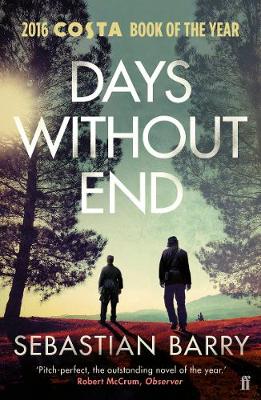 Sebastian Barry’s novel, Days Without End, stands out among the many books/plays/films/Netflix series/news/magazines/podcasts clamouring to be recognised, to be read and understood, in our frenzied media-saturated lives. From the very first page, the reader is held by the distinctive, consistent and very believable voice of Thomas McNulty, an Irish famine refugee who, after discovering his talent as a drag artist, volunteered to serve in the Union army and now, the best part of twenty years on, tells the tale of his part in the Indian Wars of the mid-West and in the bloody turmoil of the Civil War. At every stage, closest in his heart is his friend and lover, the enigmatic, handsome John Cole, and then he is joined there by their adopted daughter, the Indian girl Winona, the sole surviving member of her tribe, victims of a needless massacre,.
Sebastian Barry’s novel, Days Without End, stands out among the many books/plays/films/Netflix series/news/magazines/podcasts clamouring to be recognised, to be read and understood, in our frenzied media-saturated lives. From the very first page, the reader is held by the distinctive, consistent and very believable voice of Thomas McNulty, an Irish famine refugee who, after discovering his talent as a drag artist, volunteered to serve in the Union army and now, the best part of twenty years on, tells the tale of his part in the Indian Wars of the mid-West and in the bloody turmoil of the Civil War. At every stage, closest in his heart is his friend and lover, the enigmatic, handsome John Cole, and then he is joined there by their adopted daughter, the Indian girl Winona, the sole surviving member of her tribe, victims of a needless massacre,.
The sentences are beautifully crafted, the rhythms of the story rumble unstoppably underneath the incidents and events on each of the pages. Following Thomas McNulty’s journey, we are given the bottom-up view of an eye-witness participant with the sensibilities and insight of a twenty-first century commentator. My concern at the anachronisms in his sympathetic insights into the people he encounters, expressed in resonant philosophical musings about the nature of humanity which flow naturally through the autobiographical narrative, felt out of place: this is a work of fiction and a work of poetry. It is enough that Thomas McNulty could have existed, and perhaps should have existed. His story speaks of his times, with the insights of our times.
At random, this paragraph, from his description of their troops’ nightmare journey, during the Indian wars, back from the west towards the Missouri, stalked by a band of Oglala Sioux Indians:
‘ … Imagine our horror and distress then when we saw those Oglala boys sitting on their horses on the horizon. Two hundred, three, just sitting there. Our own horses were skeletons. They were getting water but little else. Horses need regular fodder, grass and such. My poor horse was showing his bones like they was metal levers sticking out. Watchorn had been a small plumpish man but he weren’t no more. You coulda used John Cole for a pencil if you coulda threaded some lead through him. We were a day out on the prairie and the horses only had the first bright green slivers of grass to graze on. Half an inch. It was too early in the year. We were yearning to see wagons, our crazy wish was to see a herd of them buffalo, we started to dream of buffalo, thousands upon thousands, stampeding through our dreams, and then we’d wake in the moonlight and see only that, piss yellow and thin in the chill darkness. Temperature dropping down the glass till it was hard to breathe it was so cold. The little streams smelling of iron. At night the troopers slept close together in their blankets, we looked like a mess of prairie dogs, sleeping close for life. Snoring through frosty nostrils. The horses stamping, stamping and steaming out frosted tendrils and flowers of breath in the darkness. Now in these different districts, the sun came up that bit earlier, more eagerly, more like the baker putting fire into his bread-oven, in the small hours, so the women in the town would have bread bright early. Lord, that sun rose regular and sere, he didn’t care who saw him, naked and round and white. Then the rains came walking over dry land, exciting the new grasses, thundering down, hammering like fearsome little bullets, making the shards and dusts of the earth dance a violent jig. Making the grass seeds drunk with ambition. Then the sun pouring in after the rain, and the wide endless prairie steaming, a vast and endless vista of white steam rising, and the flocks of birds wheeling and turning. A million birds to one cloud, we’d a needed a blunderbuss to harvest them, small black fleet wondrous birds. We were riding on and all the while, ten, fifteen miles, the Oglala moving with us, watching. Might have been wondering why we didn’t stop for eats. Didn’t have no eats to eat…. .’
Or another, at random, from his description of his post-war journey, with John and Winona, from Grand Rapids, through Indiana, to a farm near Paris, Tennessee, worked by an old comrade from the Indian wars, where they intend to settle as a family, growing tobacco.
‘ … Out between the towns among the December frosted woods and the cold farms Winona sometimes sings a song…. It’s a useful song because it’s as long as ten miles hoofing it. There ain’t a person alive could tell you what the song means. The song she sung was ‘The Famous Flower of Serving Men.’ But she sings it as good as a linnet… Such a sweet clear note she keeps in her breast. Pours out like something valuable and sparse into the old soul of the year. Makes you see the country with better eyes. The distant country melting into the sky and the crumbs of human farms scattered over the deserted commons. The road just a threadbare ravelled sleeve between these usual sights. Like three thundering buffalo ran through long ago and that was all the people of Indiana craved for a path. Famers just that bit easier with us than the town folk but still in this thrumming after-music of the war there’s caution and fear. Guess the human-looking bit is Winona but there again we find that Indians ain’t much favoured despite the name Indiana…. ‘
Any two paragraphs could have been chosen in a book that is one continuous stream of beautifully crafted prose, pulling the reader along Thomas McNulty’s journey, through Thomas McNulty’s eyes, into Thomas McNulty’s poetic world, into Sebastian Barry’s polished work of art.

